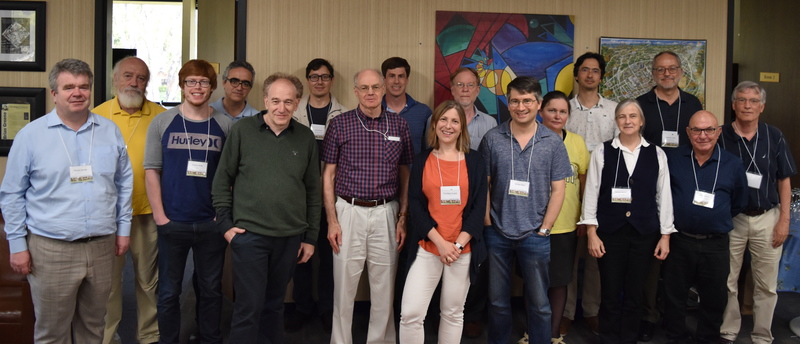Non-Hermitian quantum mechanics and symplectic geometry
July 16 to July 20, 2018
at the
American Institute of Mathematics,
San Jose, California
organized by
Eva-Maria Graefe,
Michael Hitrik,
Roman Schubert,
and Alejandro Uribe
Original Announcement
This workshop will be devoted to the exploration of new connections between
complex symplectic geometry, quantum mechanics with non-hermitian hamiltonians,
and spectral theory of non-selfadjoint operators. Symplectic geometry, as the
geometry underlying classical hamiltonian mechanics, has been proven to be
extremely useful for understanding problems in quantum mechanics and the
spectral theory of self-adjoint operators, in the semiclassical limit. This has
lead to the areas of microlocal and semiclassical analysis which underpin a
large part of the modern theory of PDEs. While quantum mechanics traditionally
uses hermitian hamiltonians to describe closed quantum systems, recently there
has been a surge of interest in non-hermitian hamiltonians to describe open
quantum systems with losses. This leads to complex hamiltonian flows and hence
complex symplectic geometry. Recently new connections between these fields have
emerged and the aim of the workshop will be to develop a deeper understanding of
these connections and to explore if they can be used to attack some of the open
problems in the theory of open quantum systems and non self-adjoint operators.
The main topics of the workshop are:
- Complex and symplectic geometry related to the complexification of the group of
hamiltonian transformations.
- Semi-classical limit of dynamics generated by non-hermitian hamiltonians,
including propagation of generalized coherent states.
- Spectral theory of non-selfadjoint operators, including Bohr-Sommerfeld
conditions.
- Non-hermitian quantum mechanics.
We wish to bring together experts in complex and symplectic geometry, microlocal
and semiclassical analysis, and quantum mechanics, interested in working across
areas on at least some of the topics listed above.
Material from the workshop
A list of participants.
The workshop schedule.
A report on the workshop activities.
A list of open problems.

